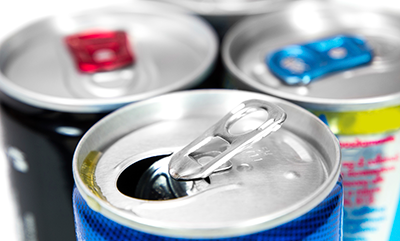Men’s Consumption of Caffeinated Sodas, Energy Drinks Linked to Reduced Chances of Pregnancy.
 Caffeine intake by men—specifically from soda and energy drinks—may reduce the chances of pregnancy, a new study led by School of Public Health researchers shows.
Caffeine intake by men—specifically from soda and energy drinks—may reduce the chances of pregnancy, a new study led by School of Public Health researchers shows.
The study, in the journal Reproductive Toxicology, found that female caffeine intake had no appreciable effect on fecundability, or the probability of a couple achieving a pregnancy. But higher consumption of caffeine (≥300mg/day) by males was associated with slightly reduced fecundability, in a sample of more than 600 men who were in couples trying to get pregnant. The association appeared to be driven mainly by consumption of caffeinated sodas and energy drinks.
“To our knowledge, no other study has examined the association between energy drink consumption and fecundability,” said Amelia Wesselink, lead author of the study and an SPH doctoral candidate in epidemiology. “We found little association between female energy drink consumption and fecundability, but a 54 percent reduction in fecundability among males who consumed one or more energy drinks per day.”
Because the study was based on a relatively “small number of men who consumed energy drinks on a daily basis,” she added, “this finding should be replicated” in a larger study.
The study also found that caffeinated tea intake was associated with slight reductions in conception probability among women, but not among men.
The research team noted that prior studies have reported a lower chance of conception for women who consumed caffeinated sodas. Some of those studies suggested that sugar or other ingredients in soda could be responsible for the association.
While the authors did not speculate about why sodas and energy drinks might impact male fecundability, they noted that their findings agree with two prior studies of semen quality in reproductive-age men that showed sugar-sweetened beverage intake was inversely associated with progressive sperm motility. They said soda intake could cause subfertility through increased risk of insulin resistance, metabolic syndrome and weight gain, or through exposure to chemical contaminants in soda cans.
The study was part of an ongoing Internet-based study of pregnancy planners known as PRESTO (Pregnancy Study Online) that is examining fertility among more than 3,000 women, ages 21 to 45. Some of their male partners also are participating.
Co-authors on the study from SPH include: Elizabeth Hatch, Lauren Wise, and Kenneth Rothman, professors of epidemiology; and Kristen Hahn, a research fellow in epidemiology. Other authors are Shruthi Mahalingaiah, assistant professor of obstetrics and gynecology at the School of Medicine and Boston Medical Center, and Ellen Mikkelsen of Aarhus University Hospital in Denmark.